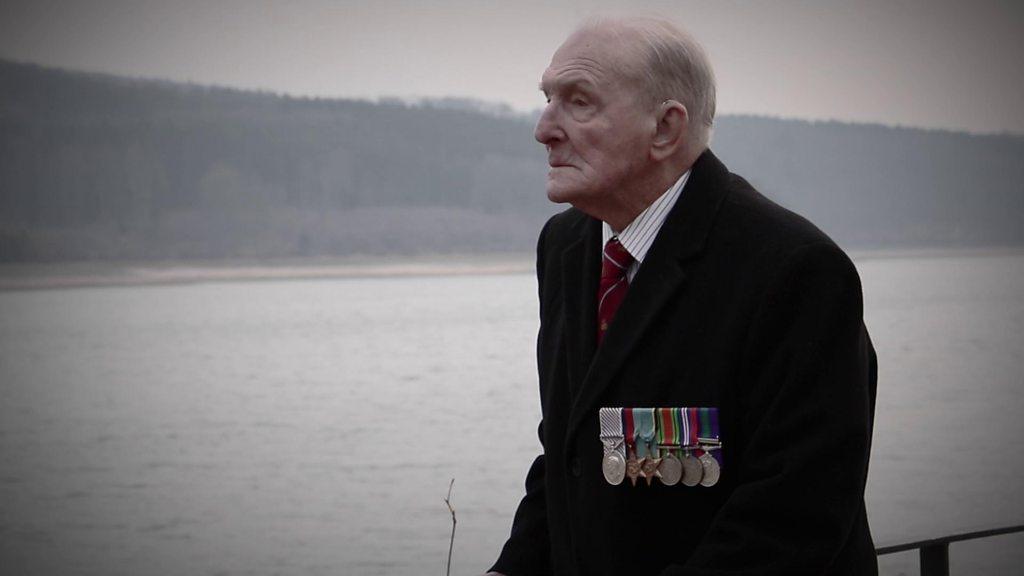Tributes paid as last surviving Dambuster Johnny Johnson dies
- Published
Sq Ldr George "Johnny" Johnson was a bomb-aimer during the raid to destroyed key dams
TV presenter Carol Vorderman has led tributes to the last survivor of the World War Two Dambusters who has died aged 101.
Sq Ldr George "Johnny" Johnson, was a bomb-aimer in the 617 Squadron, which destroyed key dams in Germany during the war.
His family said he died peacefully in his sleep on Wednesday.
In 2017, Ms Vorderman led a campaign for Mr Johnson to receive a knighthood for his bravery during the operation.
Ms Vorderman described him as "one of the finest."
Celebrating his 100th birthday in November last year, Mr Johnson told the BBC: "I've had a very lucky life in every respect."
He was born in Lincolnshire and lived in Bristol, and was just 21 when he took part in the 1943 operation, which involved experimental bouncing bombs that were targeted at dams in the Ruhr Valley, releasing huge quantities of water into areas used by Germany for war production.
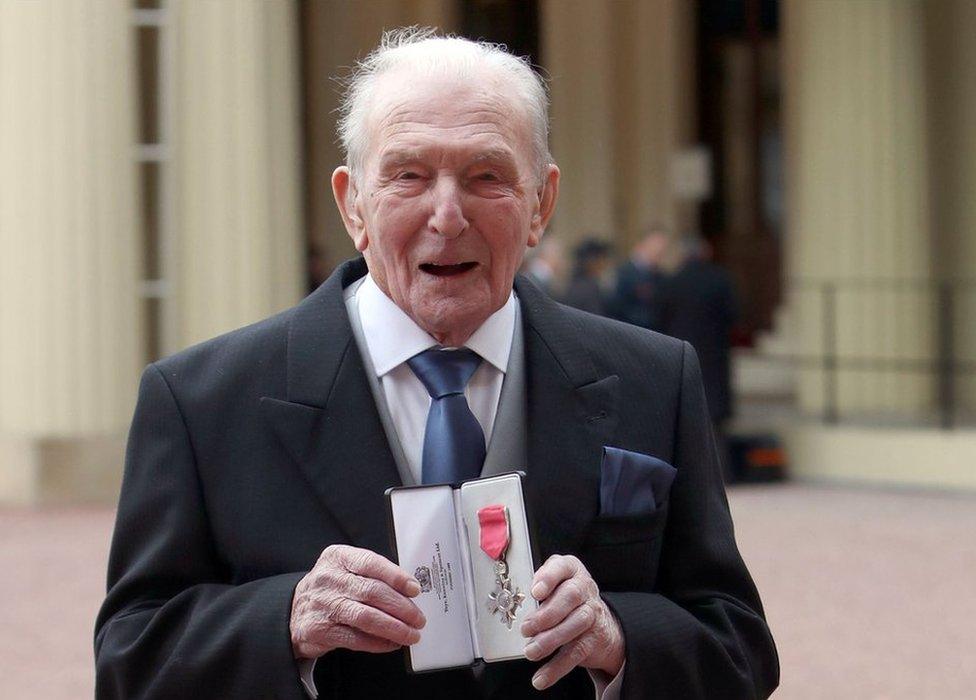
"Johnny" Johnson was presented with an MBE by The Queen in 2017
"It was an exhilarating experience," he said of the raids, adding he felt "honoured to have had the chance to take part".
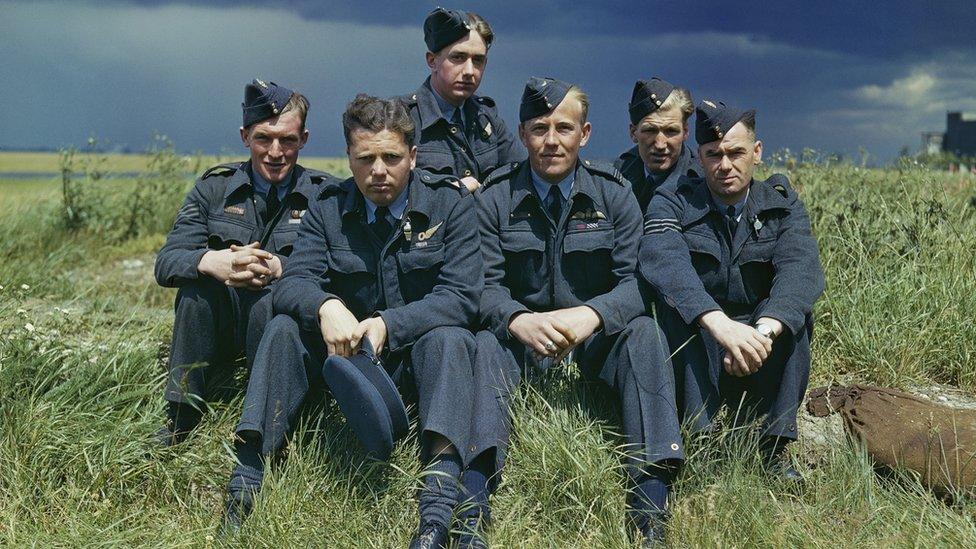
Sgt George Johnson (extreme left) was part of 617 Squadron based at Scampton, Lincolnshire
Mr Johnson was made an MBE in 2017 after a long-running campaign supported by celebrities such as Ms Vorderman.
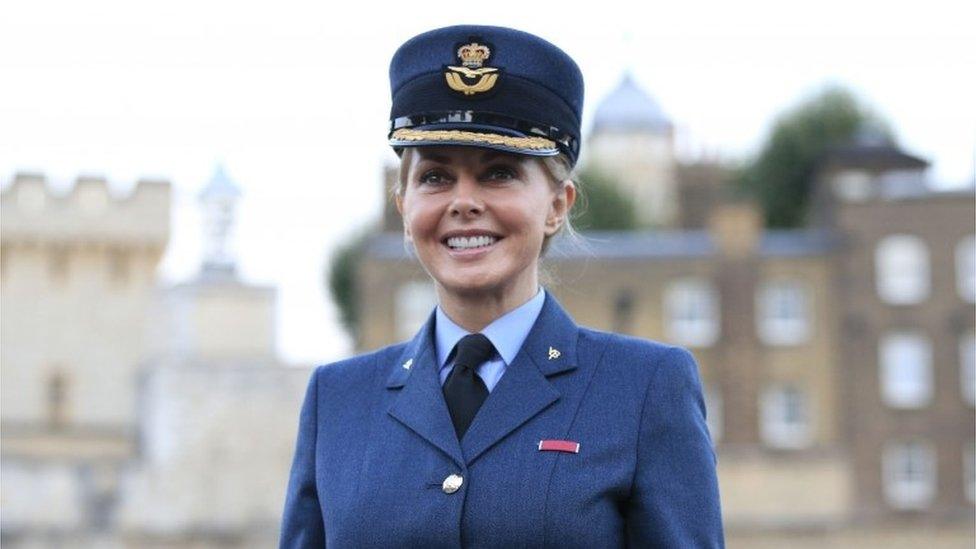
Trained pilot, Ms Vorderman is an ambassador for the RAF Air Cadets
She told BBC Radio Bristol Mr Johnson was part of a generation that sacrificed everything - but asked for nothing in return.
"Well over 50,000 died in combat and their average age was this similar to that of Johnny's at the time," Ms Vorderman said.
"There were young men, there were kids, and Jonny was one of the finest."
Posting to Facebook, his daughter Jenny Sextone said his family were beside their "beloved Gramps", at the time of his death.
"We would appreciate your respect for our privacy in this family time," she added.
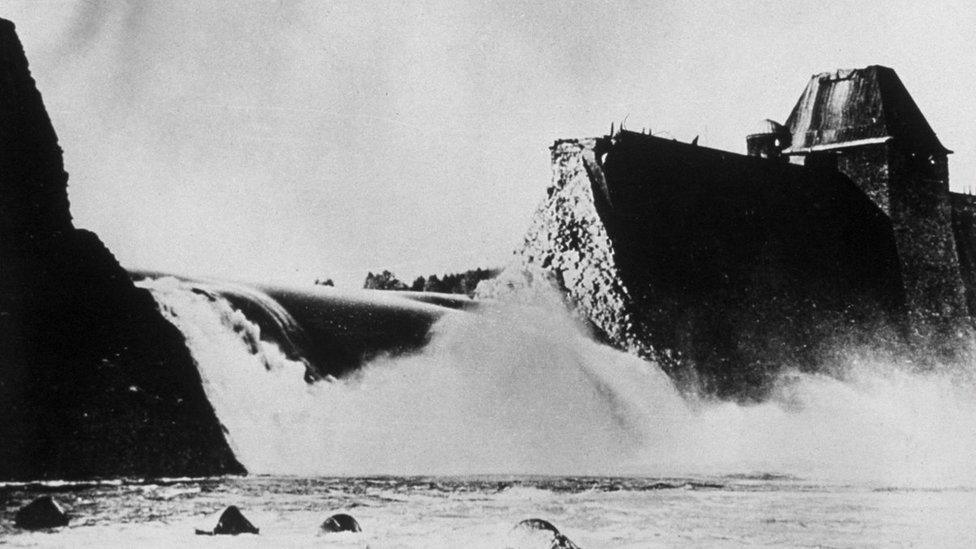
The Möhne Dam in North Rhine-Westphalia after being bombed during Operation Chastise
It was Mr Johnson's job to target the Sorpe Dam as part of the attack, which was codenamed Operation Chastise and carried out by the RAF's 617 Squadron, based at RAF Scampton.
It was one of the most dangerous air operations of the war, with 53 men killed and three captured.
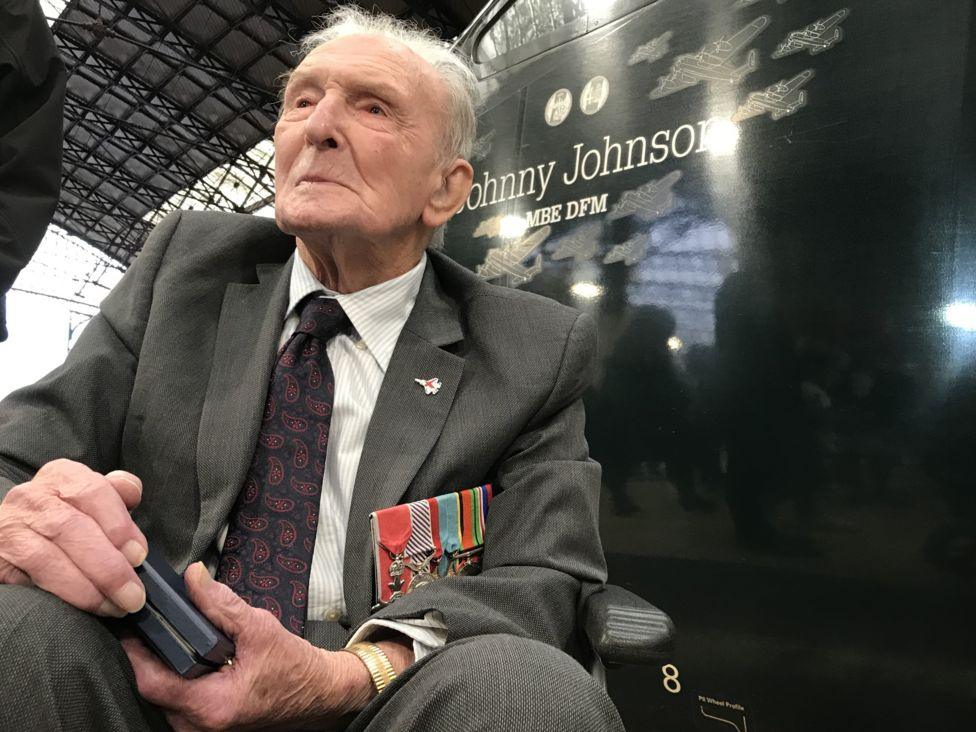
In 2019, Mr Johnson had a tour of the cab of the Great Western Railway train named after him
Painter Dan Llywelyn Hall - who produced a portrait of Mr Johnson for his 100th birthday - described him as a man with a "warming and inviting spirit".
"He was still exuberant and alert and wanting to keep regaling his stories," he said.
"That freshness was always there. He was always able to energize the room."
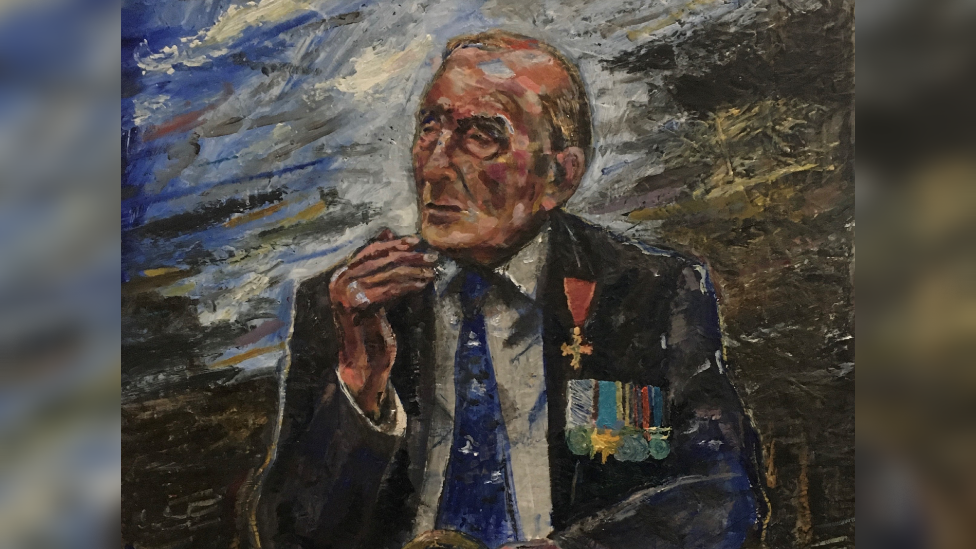
Dan Llywelyn Hall spent six months working on this portrait which is part of a series titled "The Last Dam Busters"
In the last few years of his life Mr Johnson, who lived in Westbury-on-Trym in north Bristol, was involved in charity work and made many public appearances.
In 2019, he had an inter-city train named after him and was also given an honorary doctorate by the University of Lincoln in 2017.
After 22 years of service in the air force, he worked as a teacher in Newark in Nottinghamshire.
He and his wife Gwyn later moved to Devon, where he became a Conservative councillor.
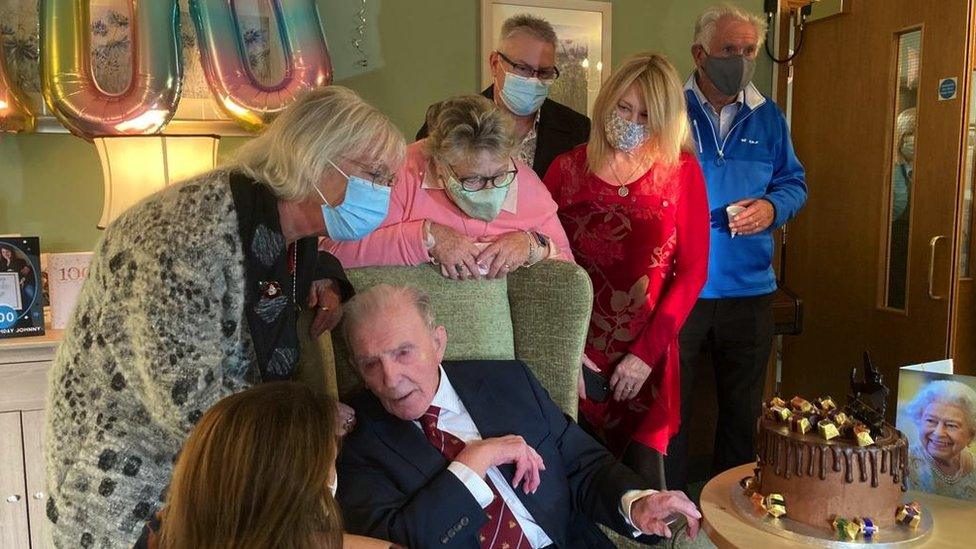
Mr Johnson was joined by friends and family to mark his 100th birthday, in November 2021
Author, war veteran and friend John Nichol said: "I was looking through some pictures of all of the times I'd met Johnny and I think in every single one he and I had got a glass of something in our hands and we're raising a toast to something or someone.
"That is how I'll remember Johnny, a man who loved life, who served his nation and loved a glass of red wine."
Lisa Harding, an aviation photographer and archivist for the Petwood Hotel in Lincolnshire - once home to 617 Squadron - said she was "heartbroken" having met Mr Johnson on several occasions.
"He was a truly humble man who was always quick with his praise for everybody else with him in Bomber Command and who described himself as just doing his job, and his relentless fight for Bomber Command veterans to get the medal that they deserved," she said.
"He was fighting for that pretty much up until his last breath."

Follow BBC West on Facebook, external, Twitter, external and Instagram, external. Send your story ideas to: bristol@bbc.co.uk , external
Related topics
- Published8 December 2022
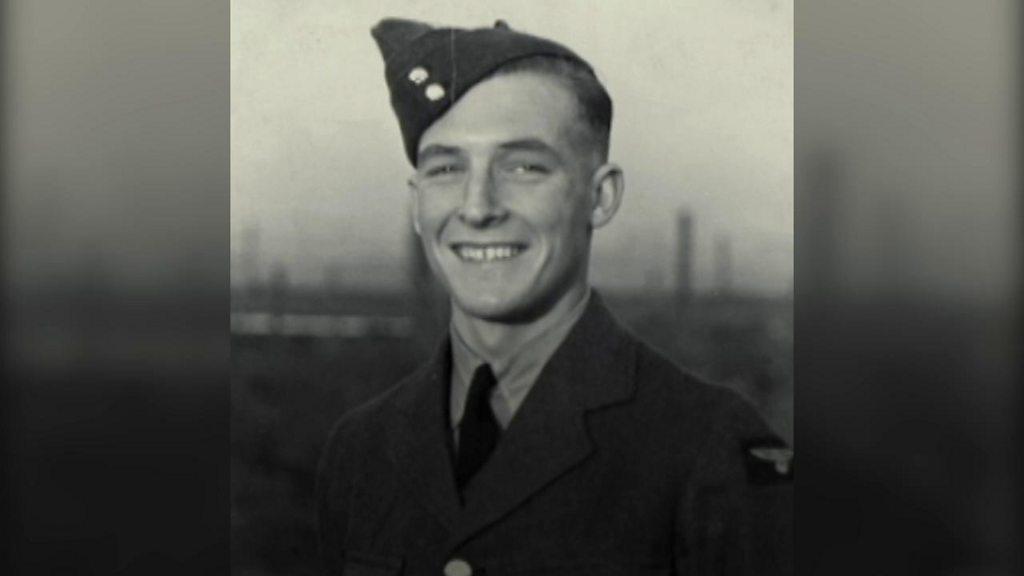
- Published25 November 2021
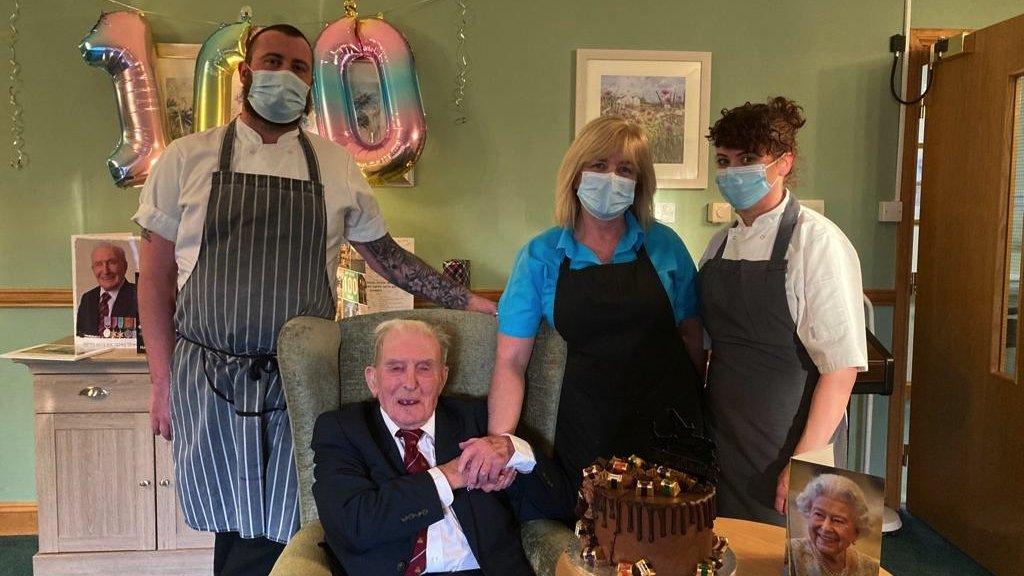
- Published15 May 2018
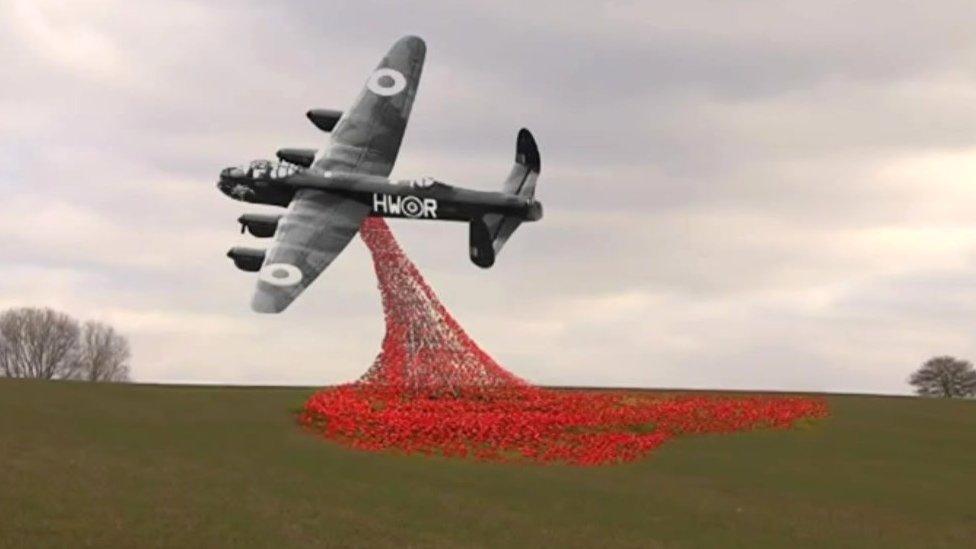
- Published16 June 2017
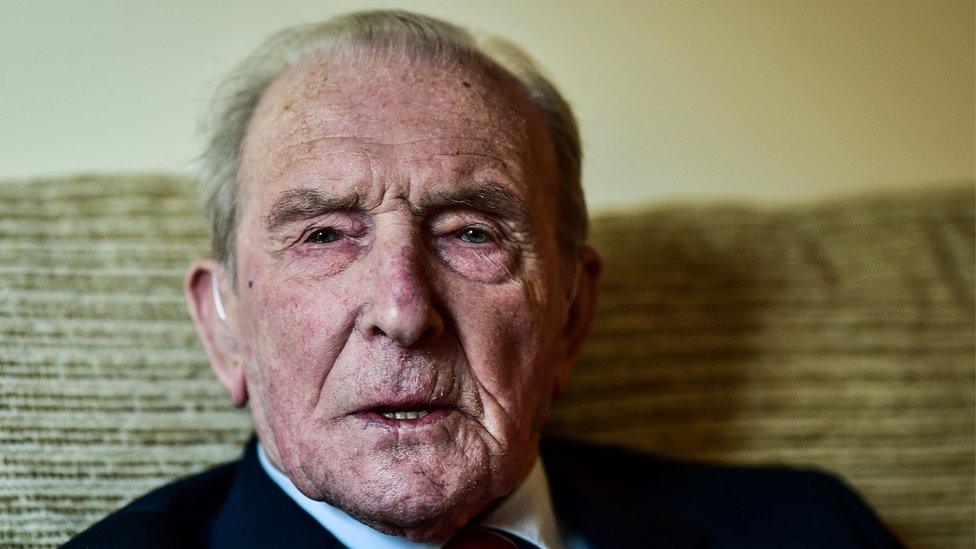
- Published7 March 2017
